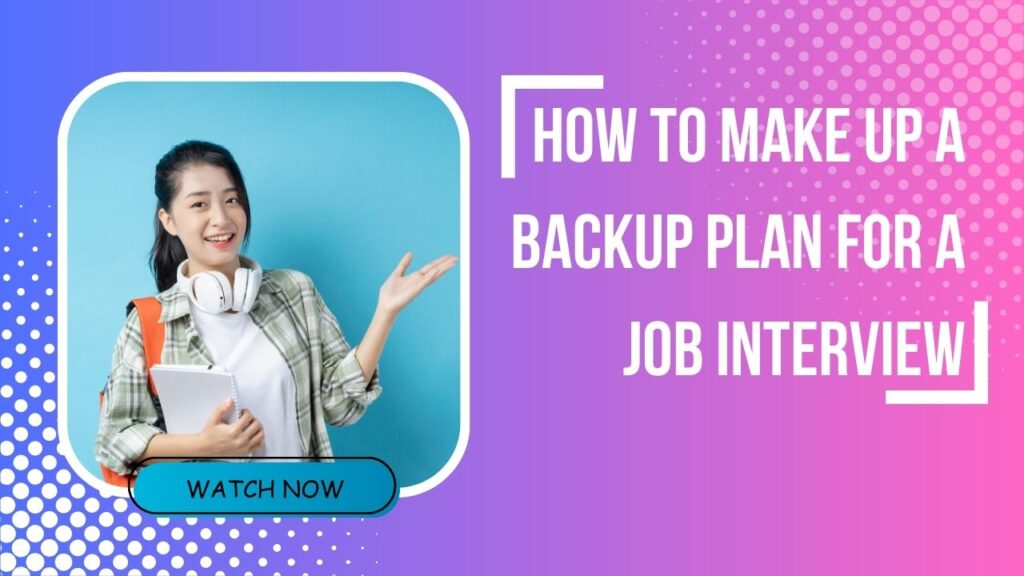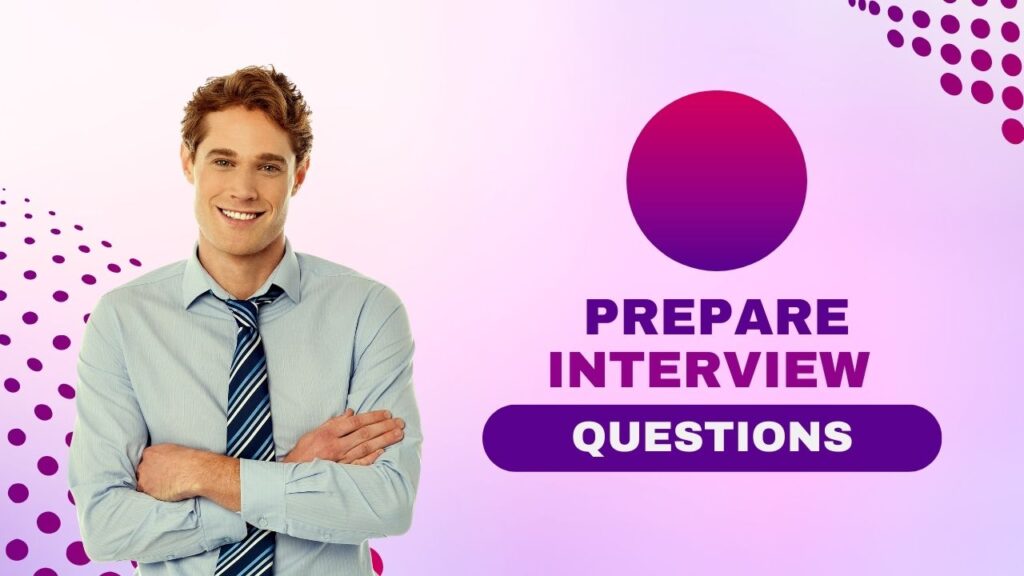Jessica Pointing, a junior at Harvard University, has an enviable problem – too many internship offers. With major names like Google, Apple, Facebook, Microsoft, McKinsey, Bain, Goldman Sachs, and Morgan Stanley on her list, she’s certainly doing something right. With majors in Computer Science and Physics, she has managed to receive offers for roles spanning software engineering, data science, product management, consulting, investment banking, trading, and quantitative finance.
How has she managed such an impressive feat? Jessica attributes her success to thorough preparation and maintaining a relaxed demeanour during interviews. In this article, she shares her top tips for acing interviews and leaving a lasting impression.
These strategies have been originally published on her blog, the Optimize Guide, which offers educational and career advice for college students:
1. Prepare Thoroughly
Jessica recommends that you hit the books before your interview, as many of the questions could be based on your course. Consider the interview as an exam – study from books, engage in practice problems, and prepare thoroughly.
For instance, “Cracking the Coding Interview” by Gayle Laakmann McDowell for software engineering interviews and “Case in Point” by Marc Cosentino for consulting roles are recommended.
“Investment Banking Interview Study Guide” by Sean Miller offers excellent interview tips for investment banking roles. “The Marketing Interview” by Lewis C. Lin provides 50 common interview questions and detailed answers.
“Data Science for Business” by Foster Provost and Tom Fawcett is not strictly an interview guide but provides a robust understanding of principles and concepts that’ll prove helpful in interviews for data science roles. “Decode and Conquer: Answers to Product Management Interviews” by Lewis C. Lin is a good choice for product management roles.
2. Adopt a Problem-Solving Structure

Interviews can be nerve-wracking, which is why Jessica advocates adopting a problem-solving structure to help manage stress and answer questions effectively.
College students can use it too. A problem-solving structure is a systematic approach to tackling a problem or challenge. It’s a method that breaks down the problem into manageable steps, which are easier to understand and resolve. This structure is particularly useful in professional settings where complex problems need to be solved efficiently.
The problem-solving structure can vary across different industries, but the general approach involves the following steps:
- Identify the Problem: Clearly define the problem. Understanding what needs to be solved is the first and most crucial step.
- Analyze the Problem: Break down the problem into smaller parts and try to understand the underlying causes. This step might involve gathering data, asking questions, or researching the issue more in-depth.
- Generate Potential Solutions: Brainstorm possible solutions without judging their feasibility initially. The goal is to generate a wide range of options.
- Evaluate Solutions and Select the Best One: Analyze the pros and cons of each proposed solution and select the best one based on your evaluation criteria.
- Implement the Solution: Put the chosen solution into action. This might involve delegating tasks, setting timelines, and monitoring progress.
- Review and Learn from the Outcome: After the solution has been implemented, evaluate its effectiveness in solving the problem. If the problem persists, you may need to reassess the situation and try a different solution.
Remember, this is a cyclical process and not linear. If the implemented solution doesn’t work, you may need to go back to the previous steps and try a different approach.
3. Practice Makes Perfect
It’s crucial to practice in an interview-like setting before the real deal. Take advantage of every opportunity to engage in mock interviews – this can be through college offerings, company-provided options, or services like Reflash.
Nine tips to practice for internship offer interviews are:
- Research the Company: Before you step into an interview, it’s essential to have a solid understanding of the company and its industry. Visit their website, read their mission statement, understand their products or services, and be aware of recent news or developments related to the company.
- Understand the Job Role: Thoroughly review the job description to understand what the role entails and what skills and experiences the company is looking for. You can better tailor your responses to highlight these skills during the interview.
- Prepare STAR Stories: The STAR method (Situation, Task, Action, Result) is a useful structure for answering behavioural interview questions. Prepare stories from your past experiences that demonstrate your skills and achievements relevant to the job role.
- Practice Common Interview Questions: There are common questions asked in nearly every job interview like, “Tell me about yourself,” “Why do you want to work here?” or “What are your strengths and weaknesses?” Practice concise and thoughtful answers to these questions.
- Mock Interviews: Practice with a friend, family member, or career coach by having them conduct a mock interview with you. This can help you get comfortable with answering questions and receiving feedback.
- Know Your Resume/CV Inside Out: Be prepared to discuss anything that’s on your CV as interviewers often use it as a guide for their questions. Make sure you can discuss each of your past roles, responsibilities, and achievements in detail.
- Develop Questions to Ask: Interviews are a two-way street. Come prepared with thoughtful questions to ask about the role, the team, or the company. This demonstrates your interest and enthusiasm for the role.
- Body Language and Communication: Practice maintaining eye contact, speaking clearly, and listening attentively. Non-verbal cues are just as important as what you say during an interview.
- Conduct a Dress Rehearsal: Try on your interview outfit beforehand to ensure it’s professional, comfortable, and appropriate for the company’s culture. Also, plan your route or set up your tech if it’s a video interview to ensure you arrive on time and without unnecessary stress.
4. Establish a Backup Plan

Knowing you have an alternative plan can take off some of the pressure during interviews. This way, even if Plan A doesn’t work out, you’re not left stranded.
If you’ve unfortunately not been successful in securing your favourite internship following an interview, don’t lose heart. There are several steps you can take, and it’s a good chance to utilise some vital interview tips to better prepare for future opportunities:
- Seek Feedback: The first step is to kindly ask for feedback from your interviewer. Although it may feel awkward, gaining an understanding of where you fell short can provide invaluable insights to improve for future interviews.
- Reflect on the Experience: Spend some time reflecting on your interview. How do you think you performed? Were there questions that caught you off guard? Make a note of these instances for further improvement.
- Utilise Interview Tips: Use the feedback and your self-reflection to identify areas you need to improve. Revisit interview tips and strategies, focusing on areas where you need the most development. This might include improving your communication skills, broadening your industry knowledge, or working on presenting your skills more effectively.
- Keep Practicing: As with many things in life, practice makes perfect. Keep practising your interview skills, whether that’s with friends or family, through online platforms, or by seeking professional assistance.
- Expand Your Search: While it can be disappointing to miss out on your favourite internship, it’s important to remember there are many opportunities out there. Expand your search and apply to other internships. You might find an even better fit for your skills and career goals.
- Stay Positive: It’s normal to feel disheartened, but remember, every interview, whether it leads to a job or not, is a valuable learning experience. Stay positive and view each interview as an opportunity to improve and get one step closer to your goal.
- Build Your Skills: Use this time to build on the skills required for the internship you desire. This could involve taking relevant online courses, participating in relevant projects, or gaining practical experience through volunteering.
- Network: Networking can often open up opportunities. Attend industry events, join online forums, and connect with professionals in your field on LinkedIn. You never know, it may lead to your next internship opportunity.
Remember, not cracking an interview doesn’t define your worth or potential. It’s simply an indication that there are areas you can improve or perhaps that the role wasn’t the best fit for you. Persistence and continual learning are key to eventually landing the internship you desire.
5. Invest Your Time Wisely
Invest time in your internship search process. Consider it as a serious commitment and devote a few hours each day practising for interviews.
The ideal internship search process for college students involves several steps that require strategic planning and execution:
- Self-Assessment: Start by identifying your interests, skills, and career goals. It’s crucial to find an internship that aligns with your academic background and future aspirations.
- Research: Look into various companies and industries that interest you. Consider the company culture, the type of work they do, and their reputation in the industry.
- Identify Opportunities: Use various resources to identify potential internship opportunities. This could include college career services, job search websites, professional networking sites like LinkedIn, and industry-specific job boards.
- Prepare Your Application: Tailor your CV and cover letter to each internship application. Highlight relevant skills, experiences, and express how the internship aligns with your career goals. Don’t forget to proofread to avoid any errors.
- Leverage Your Network: Utilise your network of family, friends, professors, college alumni, and even past employers to find potential opportunities. Networking can often lead to referrals and provide valuable insights about prospective companies and roles.
- Practice Your Interview Skills: Before you attend any interviews, take the time to practice. This could involve rehearsing common interview questions, participating in mock interviews, or using online resources to enhance your interview skills.
- Follow Up: After applying or interviewing, always follow up. This could involve a simple email thanking the interviewer for their time and expressing your continued interest in the role.
- Keep Your Options Open: Apply to multiple internships that fit your career goals. Having a variety of options increases your chances of landing an internship.
Remember, the internship search process for college students can take time and requires persistence. It’s not always straightforward, and there might be competition. However, with careful planning, preparation, and initiative, you can significantly increase your chances of securing an ideal internship.
6. Develop a Question Bank

After each interview, note down the questions asked and the solutions provided, as well as your strengths and areas of improvement. This will help you identify patterns and become more confident and quicker in solving problems.
For example, 10 common internship interview questions for MBA students are:
- Can you tell me a bit about yourself? It’s a standard question in most interviews, aimed at understanding your background, your experiences, and what led you to pursue an MBA.
- Why are you interested in this internship? This question tests whether you’re genuinely interested in the internship offer or if it’s just another application for you. Talk about how the internship aligns with your career goals.
- Can you tell us about a time when you used your leadership skills to overcome a challenge? This question is often asked to gauge your leadership qualities and problem-solving skills, both of which are important in an MBA role.
- What is your understanding of our company and industry? This question tests your research skills and understanding of the industry you want to intern in.
- How do you manage your time and prioritise tasks? Time management is a critical skill for MBA students, and employers want to see that you can handle the workload of an internship alongside your studies.
- Could you provide an example of a project or task where you had to use data to make a decision? This question is common in interviews for MBA internships, as it showcases your analytical skills and ability to make data-driven decisions.
- Why should we choose you for this internship offer? This question gives you an opportunity to summarise your key strengths and how they would benefit the company during your internship.
- What are your long-term career goals, and how does this internship fit into those? Employers want to see that you’ve thought about your career trajectory and how their internship offer fits into that.
- Can you tell us about a situation where you worked as part of a team to achieve a goal? MBA programs and most business settings are team-oriented, so employers want to know about your teamwork and collaborative skills.
- What do you hope to gain from this internship? This question helps the interviewer understand what you’re looking to get out of the internship offer, whether it’s specific skills, experience in a certain industry, or other professional development opportunities.
7. Prepare for Behavioural Questions
Don’t neglect the importance of behavioural questions. Come prepared with answers to common questions about your strengths, weaknesses, and goals.
Here are some examples:
1. Can you describe a situation where you had to work under pressure?
Answer: I once had to complete a group project where two members unexpectedly dropped out. To meet the deadline, I had to reassign their tasks while ensuring that our work quality didn’t drop.
2. Tell me about a time when you made a mistake. How did you handle it?
Answer: I made a significant data entry error during my previous internship. Upon realising it, I immediately informed my supervisor and spent extra hours rectifying the mistake. I learned the importance of double-checking work and have since reduced similar errors.
3. Can you share an example of how you handled a conflict with a teammate?
Answer: In a group assignment, one team member wasn’t contributing. I approached them privately to understand if they were facing any issues. They were struggling with the task, so I helped them break it down, improving their contribution and our group dynamic.
4. Describe a situation when you had to go above and beyond to get the job done.
Answer: During a previous internship, a colleague fell ill just before a major project deadline. I volunteered to take over their part of the project to ensure we met the deadline without compromising on the quality of the work.
5. Tell us about a time you showed initiative.
Answer: In my last role, I noticed that the process for logging client queries was inefficient. I suggested implementing a new software which led to a 30% increase in efficiency and was well appreciated by the team.
6. How have you handled feedback in the past?
Answer: I view feedback as an opportunity to grow. At my last internship, I received constructive criticism about my presentation skills. I took it positively, worked on the areas of improvement, and gradually enhanced my skills.
7. Describe a time when you demonstrated leadership.
Answer: In my university, I led our team in the annual tech fest. I delegated tasks effectively, ensured everyone was motivated, and that we stayed on schedule. We ended up winning the competition.
8. How do you handle failures?
Answer: Failure for me is an opportunity to learn. When I fail, I analyse what went wrong, learn from it, and use that knowledge to improve and avoid making the same mistake in the future.
9. Describe a situation when you had to adapt to significant changes at work.
Answer: In my previous internship, the company decided to switch to a new project management tool. I took the initiative to familiarise myself with the new system quickly and even conducted a small workshop to help other interns.
10. Can you share an experience where you had to manage multiple tasks at once?
Answer: During my time at university, I balanced a part-time job, studies, and a leadership role in a student society. I managed this by improving my time management and organisational skills, ensuring I met all my responsibilities without sacrificing performance in any area.
Following these tips can go a long way in helping you secure that dream internship. Best of luck!
This article originally appeared in Business Insider.





